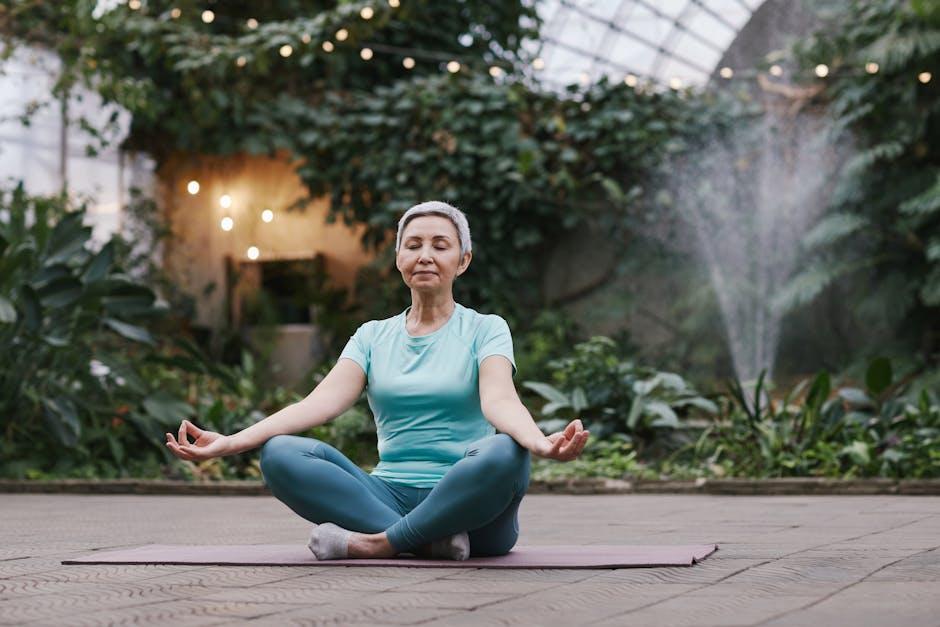Amid the quiet rustle of leaves and the gentle touch of soil slipping through our fingers, gardening offers more than just a colorful bloom or a bountiful harvest. It unfolds as a subtle sanctuary for the mind, a place where stress can quietly wither away and moments of clarity take root. In a world increasingly dominated by screens and schedules, the act of tending to plants invites a pause, encouraging mindfulness and connection with nature. This article explores the mental health benefits of gardening, revealing how this ancient practice nurtures not only the earth but also the well-being of those who cultivate it.
The Therapeutic Power of Nature Connection

Immersing oneself in the natural rhythms of soil, plants, and sunlight fosters a unique therapeutic experience that transcends ordinary relaxation. This intimate interaction taps into our inherent biophilia, the deep-rooted human affinity for life and natural processes. It has been shown to lower cortisol levels, promote mindfulness, and even enhance cognitive function. The simple act of tending a garden cultivates a mindful presence that anchors the mind away from the whirlwind of daily stresses and channels focus into nurturing growth and healing.
Engaging with nature through gardening offers a spectrum of mental health rewards, including:
- Stress reduction: The sensory richness of nature lowers anxiety and improves mood.
- Emotional resilience: Watching plants thrive despite challenges fosters optimism and patience.
- Social connection: Community gardens create spaces for bonding and purpose-sharing.
- Physical activity: Gentle movement stimulates endorphin release and promotes better sleep.
| Benefit | Mindful Mechanism | Result |
|---|---|---|
| Sunlight Exposure | Boosts Vitamin D Production | Elevates mood and energy levels |
| Soil Contact | Interacts with beneficial microbes | Reduces inflammation and anxiety |
| Creative Expression | Designing and nurturing plants | Enhances self-esteem and purpose |
Cultivating Mindfulness Through Gardening Rituals

Engaging with the soil and plants transforms gardening into a living meditation. Each step-from planting seeds to tending buds-anchors you in the present moment, encouraging a gentle immersion in nature’s rhythms. This hands-on connection fosters a quiet awareness that cultivates patience and diminishes stress. As you water the leaves or prune a branch, your mind naturally shifts away from daily distractions, allowing a serene space for reflection and mental clarity to blossom.
Incorporating simple rituals amplifies the mindful experience, creating a soothing routine that nurtures both plant and spirit. Consider practices such as:
- Morning Dew Greeting: Pausing to feel the coolness of water droplets on leaves.
- Gratitude Whispering: Silently expressing thanks to the earth before planting.
- Intentional Harvesting: Carefully selecting produce with appreciation for growth cycles.
These gestures act as gentle anchors, transforming gardening into a sanctuary for mental peace and emotional balance.
How Growing Plants Boosts Emotional Resilience

Engaging with plants on a daily basis offers more than just aesthetic pleasure; it cultivates an inner strength that helps individuals better adapt to stress and adversity. The act of nurturing life from seed to bloom fosters a sense of accomplishment and control, which are crucial ingredients for emotional resilience. As plants respond to care and environmental changes, gardeners develop a heightened awareness of patience, adaptability, and mindful presence-qualities that naturally translate into improved coping mechanisms for life’s challenges.
Beyond the psychological benefits, growing plants promotes emotional balance through several key factors:
- Routine and Structure: Regular gardening creates a rhythm that anchors the mind, easing anxiety and uncertainty.
- Connection to Nature: Immersion in natural cycles helps reset the nervous system and fosters calmness.
- Tangible Progress: Watching seeds sprout and plants flourish provides visible feedback, boosting self-efficacy and hope.
| Emotional Challenge | How Gardening Helps |
|---|---|
| Stress Overwhelm | Calming focus on plant care creates mental pause. |
| Feelings of Helplessness | Nurturing growth restores a sense of control and agency. |
| Emotional Stagnation | Seeing progress inspires hope and emotional renewal. |
Practical Tips for Creating a Mental Wellness Garden Space

Start with a space that invites calm-think cozy corners and gentle pathways. Choose plants that engage your senses but demand minimal fuss, such as lavender, rosemary, or succulents. These varieties not only provide soothing aromas and textures but also boost your mood with their subtle vibrancy. Incorporate natural elements like smooth stones, wooden benches, or a small water feature to add layers of tranquility and help create a sanctuary for reflection and mindfulness.
Structure your garden with intention by mixing activity zones and restful spots, so moments of hands-on care alternate with peaceful respite. Use raised beds or containers for easy access, keeping your energy focused on enjoyment rather than strain. Pay attention to lighting-both natural and soft, solar-powered lamps can offer a gentle glow in the evenings, extending your moments of peace. Here’s a quick reference table for creating balance:
| Element | Benefit | Example |
|---|---|---|
| Soothing Scents | Calms the mind and reduces stress | Lavender, Jasmine |
| Easy-care Plants | Minimizes frustration, encourages consistency | Succulents, Herbs |
| Relaxation Spots | Encourages mindful breaks and reflection | Bench, Hammock |
| Natural Features | Enhances sensory experience | Water fountain, Pebbles |
Concluding Remarks
As the last rays of sunlight fade behind the leaves, it becomes clear that gardening is more than just a hobby-it is a gentle healer for the mind. Whether you’re nurturing a single pot of herbs or cultivating a vibrant backyard sanctuary, the simple act of tending to plants offers a quiet refuge from the whirlwind of daily life. In the rhythmic dance of digging, planting, and watering, we find moments of mindfulness, growth, and renewal that reach far beyond the soil. So next time you feel overwhelmed, consider stepping outside and letting your garden work its subtle magic-because sometimes, the best therapy is rooted in nature itself.














